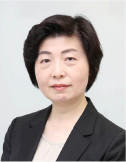2020.5.15
Growth through effective praise: how parents and caregivers can connect with their children in the current stay-at-home period
With the global pandemic meaning we are currently spending a lot more time than normal with our children, there are probably a lot of parents and caregivers worrying about how they should educate their children at home and what kind of support they should be giving them.
Benesse Educational Research and Development Institute found through its “Survey of Upper Grade Elementary School Students’ Learning 2019”* that being praised by their parents and caregivers has a positive impact on children’s learning. This point has also been reflected in the Japanese government’s educational guidelines for FY2020 onward, but exactly what kind of impact does praising children have on encouraging them take an interest in their own studying and developing their independent studying abilities? In this article, we would like to focus on information that could be particularly useful in the current conditions.
* Benesse Educational Research and Development Institute’s “Survey of Upper Grade Elementary School Students’ Learning 2019” heard from 3,004 respondents, comprised of students in the 4th to 6th years of elementary school and their parents and caregivers.

Children who are often praised at home develop independent study habits.
In its survey, Benesse Educational Research and Development Institute looked at the praise given to children by parents and caregivers, and explored in detail how this is done.
It found a significant difference in attitudes toward learning and consciousness of their own learning between children who are often praised by their parents and caregivers and those who are not.

How children are praised is key. Daily plans should be formulated and reviewed together with children, and the praise should be “specific” and “focused on the process.”
So why does praise affect children, and how can we make praise effective? We asked Mr. Kinfu Shou, who was in the charge of the survey at Benesse Educational Research and Development Institute.
“Parents and caregivers sincerely want their children to grow, and they give them praise in some form or another. Indeed, most of the parents and caregivers who responded to our survey said they praise their children. However, not all praise has a positive effect. For example, when a child gets good grades, saying “You got good grades, that’s great” makes a child feel that the parent or caregiver is saying “I want you to get good marks next time too,” and this can be a source of pressure. So how should we praise them?”

“It is vital that when you praise a child that you don’t just say “Great, you did well,” but give specific praise of what was good and why. This results in children becoming aware of things they had not noticed themselves, which is known as “metacognition” (the ability for subjective introspection), and it is a crucial element for independent study. In addition, it is important to praise the process, not just the result. For example, praising a child not only for getting a correct answer, but also for the methodology and thinking that got them to the answer makes them conscious of and reflective of their own learning. Moreover, the parent or caregiver’s act of praise helps create new goals and learning practices.”
As people are currently spending more time at home with their children, we also asked what kind of inventive things parents and caregivers can do to help in passing the time.

“I recommend talking with your child to make a plan of how you will spend each day. You should praise the child not only for studying, but also give them specific praise for things they do well or try hard at, however small. You should encourage them to try new methods and praise them wholeheartedly if it goes well, whether that be in studying or playing. I believe such small things can establish effective back-and-forth communication between a child and its parents and create a virtuous circle in the child’s learning.”
I want people to value “now.” I hope the release of the survey provides a path toward children developing independent studying abilities.
“As they spend longer at home together, parents and caregivers will likely become concerned about their child’s academic development. But it is precisely in these times of uncertainty that we should cherish spending time with them. A minor change in awareness or in the way of giving praise can really help a child. I sincerely hope that the release of such survey findings provide a path toward children developing independent studying abilities.”
Benesse Educational Research and Development Institute will continue to conduct independent surveys into a variety of issues related to children and education and to publish the results of these surveys.
Related websites (Japanese version only)
- Benesse Educational Research and Development Institute
https://berd.benesse.jp/ - Survey of Upper Grade Elementary School Students’ Learning 2019
https://berd.benesse.jp/shotouchutou/research/detail1.php?id=5474
Profile

Report supervision: Benesse Educational Research and Development Institute Elementary and Secondary Educational Research Office
The three key factors for self-learning in the theory of “self-regulated learning” in educational psychology that are required to enable a student to set their own goals, proceed to independent learning, and produce results are: “metacognition” (subjective introspection), “study motivation” (study desire and appetite), and “learning strategies” (study methods). The portion of the longitudinal study of children and parents regarding studying was designed based on this “independent learning” study model.
